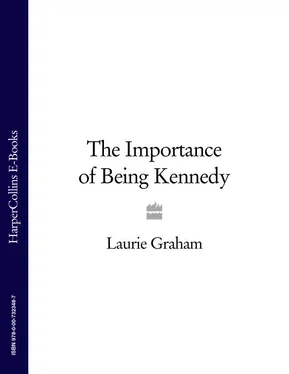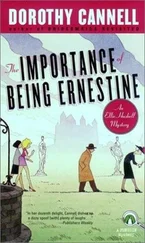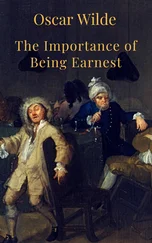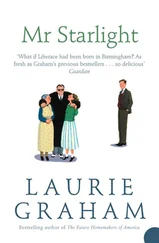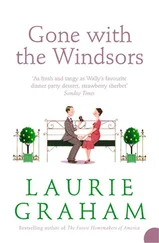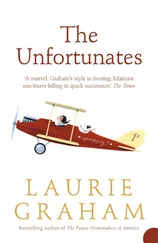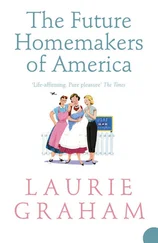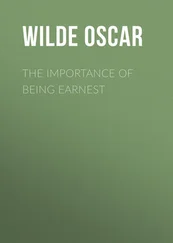‘Jack doesn't need to be a saint,’ she said. ‘Boys are different. They have to be men of the world to get ahead. But women set the moral tone.’
I said, ‘Well, Kick's twenty-eight years old and a widow and a Ladyship, so I can hardly presume to catechise her now.’
‘Of course you can,’ she said. ‘That's precisely what you can do. It's never too late. You disappoint me greatly, Nora.’
Then she closed her eyes, which is always her way of saying the conversation is over. That neat little foldaway face.
Four days we had of it. Threats and lectures and tears, and all the time I knew Kick was clinging to one silly thing her daddy had said on the telephone. That if it could be shown Blood Fitzwilliam had never been baptised, then his marriage to Lady Obby wouldn't count and he'd be free to take instruction and marry Kick in a proper Catholic church. It was all moonshine of course. The Fitzwilliams weren't the kind of family that would have overlooked baptising their son and heir, but it was typical of Mr Kennedy to dream up something like that, ducking and diving under the regulations until he found a wee hole to slip through.
I'll say this for him, though. He just wanted his girl to be happy. He knew nothing she did was likely to harm Jack's prospects, nor Bobby's, nor Teddy's. He'd see to that. The boys were his affair and whatever happened, whatever trouble they got into or talk there might be about the family, he'd keep things on track for them.
Kick cried and begged, but when it really came down to it she didn't care what her mammy did. She absolutely would not promise to give up Fitzwilliam. So Mrs Kennedy had Delia pack her bags for the onward journey to Paris and the car was ordered to take her to the aerodrome. It was an ugly leave-taking.
She said, ‘I won't stay another night in this house. You've fallen into bad company, Kathleen, and I rue the day we ever brought you to England. The Mothers at Sacred Heart laid out your path but you've deviated from it, and so deliberately too. No one can ever excuse you; no one can say you weren't taught right from wrong. Well, if you really refuse to acknowledge your errors I shall see to it you at least don't ruin your sisters with your carrying-on. They'll have nothing more to do with you. Don't telephone because they won't accept your calls and don't send letters because I shall have them burned. There's nothing more to be said until you're ready to repent.’
I was just standing there like an article of furniture, holding that horrible wrap with the fox head dangling over my arm. It seemed to me I didn't have a lot left to lose.
I said, ‘I never heard such a cruel thing. A girl needs her family, and the bigger the muddle she's in, the more she needs them, and sure weren't you the one always taught them to put family before everything else?’
‘Nora Brennan,’ she said, ‘you should have been let go years ago. I wouldn't have kept you on, married in a town hall. Well, now we see what an influence you've been. Now we see it clear. I'll pray for your soul, Kathleen. I can't do more. Until you mend your ways I will not see you. You'll be dead to me.’
She said it flat, with that darling girl standing right there. How does it sit with her now, I wonder, seeing the way things turned out? How many times has she wished she could take back those terrible words? Anyone might say a thing in anger, then wish it unsaid, but Rose Kennedy isn't anyone. I've been around her long enough to know. For a woman who's a Gold Star mother she has a heart as hard as the hob of hell.
I came to work for the Kennedys in the spring of 1917. I'd been five years in America by then, come over to be with my two sisters. Marimichael Donnelly from across the lane was on the same sailing as me. They waked us two nights together before we left, with whiskey drummed up from somewhere by the Donnelly boys, telling us what a grand future the both of us had and then weeping and clinging on to us to keep us at home. We'd neither of us been out of Westmeath before. I'd never appreciated that sky and water could stretch so far, and I know they say the world's like an apple and doesn't have an edge a ship can tumble over, but I've never understood how they know. I was braced for the end all the way, till I saw the roofs of East Boston.
Marimichael had a sister who'd gone ahead too. That was how we did it in those days. The oldest one went, then she'd send the fare for the next and so on, till everyone was settled. It was the only thing to do. The factories were starting up around Tullamore so the demand for hand-knitting was dropping off and there was no other way to make a living.
We were six in our family, one boy and five girls, except Nellie was in the graveyard, dead with the measles and only four years old. Ursie's the oldest. She left for Boston in 1909. Took a correspondence course in bookkeeping and taught herself the Pitman shorthand and she was off. She got work in the office of Holkum, Holkum and Jauncey, and to hear her she ended up practically running the place.
Ursie always had ideas. Writing paper without lines was one of her things, not that there was a lot of letter writing went on in our house, but she said lined paper was common, and she used to have a fit if ever Mammy put the milk can on the table instead of the china pitcher. After she got to America and started earning she'd send us marvellous things, not only money. Caramels and hatpins and silk stockings, and a beautiful handbag for Mammy one Christmas, real leather from Jordan Marsh, with a big, gilt snap. Dear God, we had everyone from Ballynagore come in to view that handbag. We should have charged to see it.
She must have had some courage to go off like that, not knowing a living soul in America. When they were handing out gumption I reckon Ursie got Edmond's share. He's hardly been further than the foot of the stairs.
Margaret went out to join Ursie in 1910 and I cried myself sick. Ursie wasn't the kind of sister you missed, except like an aching tooth after it's been pulled, but Margaret had always been my pal. We'd shared a bed, even. When Mammy and Deirdre went to wave her off on the bus I couldn't bear to go with them. I was convinced I'd never see her again. She kept saying, ‘You will too. I'll send for you and then you'll send for Deirdre.’
But Deirdre could never have gone to America. She had a sweet nature and the voice of an angel but she was the kind of girl that would easily be taken advantage of. She used to get confused enough in Tullamore market so she'd have been lost in a minute in Boston. Anyway, Father Hughes said a girl like Deirdre would likely be blessed with a vocation, so we all prayed for that and our prayers were answered. She went to the Maryknoll Sisters, and then to Africa to teach little black children about our Risen Lord, which left just me at home and Mammy and my brother Edmond.
Ursie kept writing that I should still think of going to America. Mother won't stand in your way , she wrote. She didn't call her ‘Mammy’ any more, since she worked for Holkum, Holkum and Jauncey. She'll be a lot happier knowing you're making something of yourself. She has Edmond to take care of her.
Edmond was supposed to be the head of the house. Dada had the Irish disease and after we lost Nellie he just turned his face to the wall and died.
Mammy used to say, ‘Edmond's a thinker. He doesn't rush into things. And did you ever see such a fine head of hair on a man?’
Well, that part was true. I believe it acted like a goose-feather comforter. It kept his noddle so warm and cosy his brain fell asleep.
I don't know whether I would have gone and left Mammy in his care, but anyway, as things turned out it was Mammy who left us. She'd a growth under her left bosom that had eaten her away inside and she'd been too shy to say anything until it was too late.
Читать дальше
